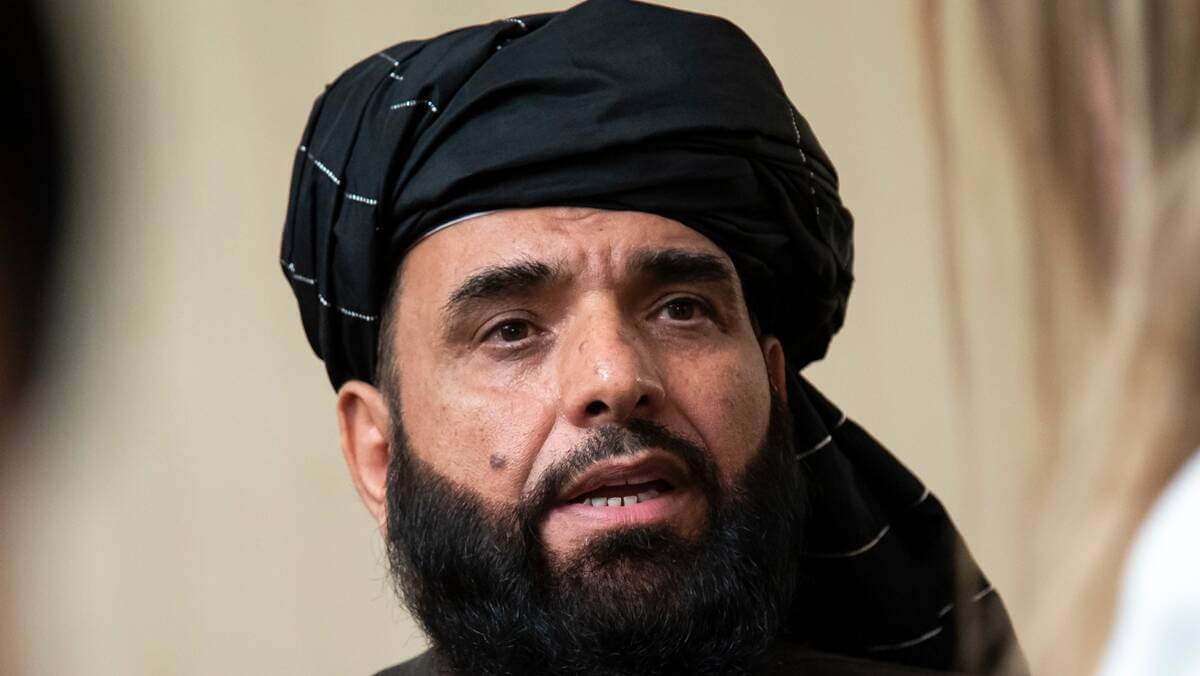The Taliban has stated that President Ashraf Ghani’s removal and a new negotiated government in Kabul are preconditions for successfully bringing an end to violence in Afghanistan. The statement comes amid the departure of the United States (US) and North Atlantic Treaty Organization (NATO) troops from the war-torn country and the Taliban orchestrating attacks and taking control over several key districts and border crossings.
Speaking to the Associated Press on Saturday, the spokesperson for the Taliban, Suhail Shaheen, outlined the group’s stand on successfully concluding a peace deal in the country. He stated that only a government acceptable to all stakeholders should be in control of the Afghan government. He said, “I want to make it clear that we do not believe in the monopoly of power because any governments who [sought] to monopolise power in Afghanistan in the past were not successful governments.” “So we do not want to repeat that same formula,” he added.
Shaheen also clarified that the Taliban was committed to ensure that the new administration allows women to work, attend schools, and participate in politics. In addition, they would not be forced to be escorted by a male relative while stepping out of the house. However, he said that women would still be required to wear the hijab or headscarf. The people in Afghanistan have been concerned about the resurgence of radical Islamist rules similar to those imposed when the Taliban took control twenty years ago.
During the interview, Shaheen said that the surge in violence has resulted from the group’s fighters ignoring the leaders’ commands. He reassured that there was no intention to make a military push on Kabul, adding that the Taliban has “restrained” itself from taking over critical provincial capitals. Moreover, Shaheen celebrated Friday’s leaders’ meet in Qatar, which saw the participation of representatives from the Taliban and the Afghan government, calling it a good start. However, he claimed that the Aghan administration did not wish to achieve “reconciliation” but instead wanted the Taliban to surrender.
Shaheen also stressed the need for President Ghani to step down as the country’s premier as a precondition for a peace deal in the country. He claimed that Ghani’s election in 2019 resulted from fraud, and questioned his right to govern Afghanistan. The Taliban has always questioned the legitimacy of the Ghani-led government. The group believes that the incumbent government is a puppet of Western powers, particularly the United States (US), which they think puts doubt on their commitment to the welfare of the Afghan people and the country.
However, Ghani has maintained that he would continue to function as the country’s President until the Afghan people democratically vote to replace him. Meanwhile, the US continues to support President Ghani and his administration. White House Press Secretary Jen Psaki, reacting to Shaheen’s statement on Friday, said, “The President and the administration support the leadership of the Afghan people, including Ashraf Ghani.” Furthermore, US President Joe Biden also informed Ghani that he had allotted $3.3 billion in the 2022 fiscal year budget request for Afghan security forces. According to a statement published by the White House, both leaders agree that the Taliban’s violent activities are “in direct contradiction to the movement’s claim to support a negotiated settlement of the conflict.”
The recent developments come as the US and NATO continue to withdraw their troops from Afghanistan despite a concerning surge in violence. Last week, General Mark Milley, the US top military officer, addressing a Pentagon press conference, raised concerns about the “strategic momentum acquired by the Taliban.” He said although a complete takeover by the Taliban was not inevitable, it was a possibility. It concerns various stakeholders in Afghanistan and also threatens regional peace and stability in South Asia.
Afghan President’s Ouster a Precondition for Peace Deal, Says Taliban Spokesperson
Speaking to the Associated Press, the spokesperson for the Taliban, Suhail Shaheen, said an intra-Afghan peace deal was not possible without the removal of President Ghani.
July 26, 2021

SOURCE: AP PHOTO
